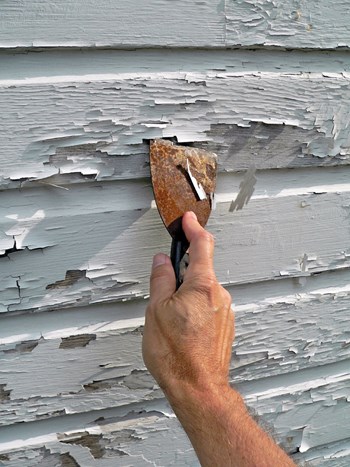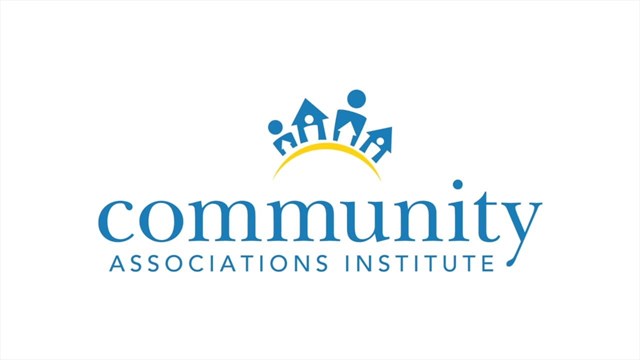
This is a great time to be on the board of directors of a condominium association—if you like a challenge.
Gone are the days of flush and growing reserve funds and easily balanced operating budgets that marked the real estate boom of the early 2000s. The economic downturn has starved condo associations of transfer, move-in and move-out fees and caused a rise in delinquencies and even foreclosures. At the same time, real estate taxes and water and energy costs are rising rapidly.
More than any time in decades, professionally managed and to an even greater degree self-managed condominium associations face tough choices when it comes to allocating funds for repair, maintenance or improvement projects.
The Chicagoland Cooperator talked with some experienced condominium managers and building engineers in the region about how they prioritize expenditures in a tight economy.
Think Like a Business Owner
“We like to guide our clients into thinking in terms of running the association like a business,” says Shirley Feldmann, founder of Chicago-based Association Advocates, Inc., a residential property management consultant and trainer of condominium association boards. “They need to do proper budgeting, proper strategic planning and obviously, if funds are low, you need to prioritize the most important projects.”
The first step, advises Feldmann, is to do a reserve study—to hire a company with architects and engineers on staff to evaluate the life expectancy of all the systems in the building to provide estimates of expenditures the association should expect over the next one, five, 10 and even 20 years.
FHA-backed lenders even require the typical association’s annual budget to contain a minimum of 10 percent in reserve funding.
“The most important thing for the condominium is to have a good understanding of the systems in the building, particularly those that can pose large expenditures,” according to building engineer Kami Farahmandpour, principal of the Arlington Heights-based Building Technology Consultants. “If they do a good reserve analysis they can plan for some of these expensive repairs or replacement projects and save time and money in the long run.”
Newly constructed condominiums would benefit from a “deficiency” or “transition” study, according to Feldmann, “to see what the quality of the property was at turnover. Some of the biggest issues are developer defects. Poor construction has left a lot of associations holding the bag to correct problems.”
During the housing boom of the early 2000s, some developers cut corners to shorten construction schedules, especially when they sensed the market was heading down from its peak. Some were forced to cut construction budgets when banks cut off their funding. And to make matters worse, some associations find that developers had priced monthly association fees unrealistically low to make the homes more attractive to buyers.
The transition study could help back up a lawsuit aimed at forcing a developer to pay to repair sub-par construction. Unfortunately, even if the condo wins a judgment against the developer it could come after he has gone bankrupt and in any case is very likely too late to address the repairs that instigated the legal action in the first place. So the deficiency study is more useful as a guide to formulating an action plan, as the reserve study is, for putting the affairs of the association in order.
After a thorough assessment of the systems in the building, the board of directors can begin their to create their plan of action—to allocate funds among the jobs that need to get done in the particular development.
Safety First
Some jobs jump to the top of the list, of course, demanding immediate attention.
“If you have a structural problem or anything that poses any type of safety violation or safety issue,” says Farahmandpour, “you’re talking about risks to human life. Condominium boards should not be taking that risk.”
There are two options in funding even emergency repairs. “There’s the expensive way and the cheap way,” says Farahmandpour, “and each has their advantages. When an association can simply not afford the more expensive way, the more short-term method might be the right thing for them to do, as long as it is a sound solution from an engineering standpoint”—and the board is choosing it with their eyes open. The cheap solution may buy time, but, says Farahmandpour, “When they put Band-Aids on Band-Aids, the problem just grows and becomes more expensive later on.”
Plus, “There’s no negotiation when you have to deal with a crisis,” says Angela Falzone, property consultant with Association Advocates. “And if you have to respond in an emergency you’re dealing with overtime hours.”
Whichever solution is chosen, whether to patch up or replace a broken building component, managers and board members need to learn from the experience. Sudden system failures are probably a signal that they have failed to properly maintain the building.
“Associations that cut corners on preventative maintenance do so at their own peril,” warns Brawley Reishman, principal of Chicago-based Transproperties Management, a condominium association management company. “If you cut corners you can find yourself in a much deeper financial hole than you would be otherwise.”
Setting Priorities, Getting Value
Maintaining roofs and exterior walls should be a number one priority, advises Reishman. “The first thing to do is keep out water.” Roof repair and tuck pointing—replacing deteriorating mortar in the joints between bricks—are essential projects. Both are expensive, especially pointing, which, in buildings of any height require elaborate scaffolding. But re-pointing is a fact of life in the Midwest, where the weather is especially hard on building exteriors.
If leaks are frequent and there is simply not enough money in reserves to fund a major re-pointing or a new roof, management should patch leaks immediately to prevent them from spreading.
Also, watch out for mold, warns Farahmandpour, a serious safety issue caused by leaks. Stop it in its tracks, he adds: “if you allow it to grow it will continue to grow and get worse and worse to the point where you cannot treat it anymore.”
The next order of business, according to Reishman, is to put together a stringent program of preventive maintenance not only to prevent emergencies but to save money in the long run. He recommends investing in service contracts that include regular maintenance visits on the building’s boiler, heating and air conditioning systems.
“Associations need to go for bang for the buck,” he says. “By oiling your circulator pump every three months you can make sure the thing doesn’t break and you don’t have to pay hundreds of dollars for a circulator pump. Paying a little bit extra for small maintenance jobs can extend the life of existing hardware.”
Another area in which preventive maintenance pays off big for condos that have them is the parking garage. “In the Midwest region during the winter months,” observes Farahmandpour, “cars drag in salt, which gets into the concrete and corrodes the rebar”—the steel bar which reinforces the concrete. When the rebar corrodes, it could expand to 10 times its original size and cause the concrete to crack. Left unchecked, the crack could spread quickly, compromising the integrity of the entire structure.
“You are much better off fixing it at an earlier stage,” Farahmandpour recommends, “when you might be able to spend $10,000.” But wait five years, he adds and that $10,000 could grow into a $150,000 project.
The Illinois Condominium Property Act
Preventive maintenance is not just a good idea—it's mandated by law. The Illinois Condominium Property Act (ICPA) holds the board of directors of condominium associations responsible for the proper maintenance and upkeep of the property. While there is no agency enforcing the act per se—“There is no condo police out there,” explains Falzone—its rules can be used to back up a lawsuit against the association and board members.
“If the board had ignored water leaks for a period of time,” explains Falzone, “an owner could potentially say that they breached their fiduciary duty and were negligent.” The board must prove it tried to resolve the leaks, that, for example, they brought in an engineer and a vendor and did some tuck pointing.
Even the most responsible and proactive boards should be insured. “A board member can be liable unless they have directors and officers coverage,” advises Reishman, “to protect the board if and when they get sued.
”Finding the Funding
Assessments are the most common way to fund repair or improvement projects, but there are limits on the board’s freedom to use them.
The Illinois Condominium Property Act puts a cap on how much the association can levy in assessments. Assessments cannot be raised to a level that makes the association non-competitive with other condominiums in the area. They cannot be set at, say, $500 a month when the normal monthly assessment in a comparable building is about $250 a month.
Assessments are also limited in most condominium declarations. “Condominium declarations often say the board may not raise assessments more than 15 percent per year without the affirmative vote of 50 or 75 percent of the association,” observes Reishman. That could make raising money for an emergency repair or even normal maintenance of the property difficult. “If the association has a lot of foreclosures or vacant units or an unengaged association,” adds Reishman, “that creates a permanent problem for them. They just can’t get out of that hole.”
Know Thyself
In tough financial times especially, it behooves board members and managers to study their declarations and bylaws to become conversant with the restrictions on spending and assessing units. Large associations with voluminous, complex declarations may need to call in a consultant to teach them their own regulations and how they work in conjunction with the state’s Condominium Property Act.
Professionally managed associations can rely on their manager to learn and implement the rules (although they should monitor their management to make sure they’re on the ball). Members of self-managed condo boards suffer a greater burden. But they are not alone. There are numerous consultants in Chicagoland offering training in every aspect of running a condo, including a review of their particular bylaws as they relate to expenditures. Some ambitious companies offer mini-seminars in the basics of running an association at a reasonable fee, which they give to self-managed associations in hopes of winning management contracts.
Extensive training is available to board members and managers from the Illinois chapter of the Community Associations Institute (www.cai-illinois.org). A pertinent class offered by CAI is called “Budgets and Reserves.” CAI also has an extensive database of professional consultants, tradespeople and vendors.
The predicament in which boards find themselves is much like the one any business faces in today’s economy: the conflict between the need to limit deficit spending and the desire to invest money in improvements to bring in more income to keep the business viable.
“If a prospective buyer is looking at two properties that are very similar,” explains Feldmann, “and one has had a big special assessment and replaced all the windows or the roof,” that property, with the improvement already bought and paid for, has added value.
“Even if the property across the street has lower assessments,” she adds, the savvy buyer might ask themselves, “when are these projects anticipated?” There might well be a surprise waiting for them once they take ownership. And in this economy, nobody likes surprises.
“It can make or break a sale,” concludes Falzone.
Steven Cutler is a freelance writer and reporter living in New York City.






Leave a Comment